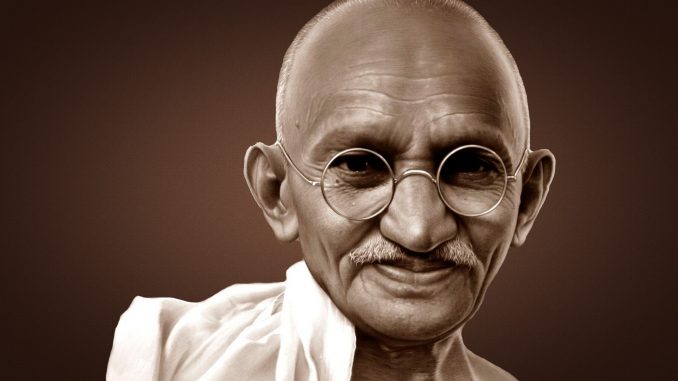
Yesterday marks the 70th anniversary of ‘Mahatma’ Gandhi’s assassination. Chris Bond looks at the legacy of the man they dubbed India’s ‘Father of the Nation’.
IT is a sad irony that Mohandas ‘Mahatma’ Gandhi, one of the world’s most famous pacifists, should have died at the hands of an assassin. The 78-year-old was gunned by a Hindu extremist while walking in a New Delhi garden exactly 70 years ago, yet he remains an enduring symbol of peaceful protest.
His message of non-violence and social inclusion inspired such notable figures as Albert Einstein, Martin Luther King Jnr and Nelson Mandela and continues to resonate in today’s volatile times. The man they called “Mahatma”, Sanskrit for “great soul”, was India’s spiritual leader, a man who campaigned tirelessly for the alleviation of poverty and for brotherhood among different religious and ethnic groups.
Gandhi first employed peaceful civil disobedience in the Indian community’s struggle for civil rights in South Africa during the early part of the 20th century, before returning to India where he organised poor farmers and labourers to protest against oppressive taxation and discrimination. When war broke out in 1939, he said India could not be party to a war being fought for democratic freedom, while that freedom was denied to India itself.
He was killed just six months after India finally gained independence from Britain – though he was shocked and appalled by the violence that erupted in the immediate aftermath of Partition.
“The light has gone out of our lives, and there is darkness everywhere, and I do not quite know what to tell you or how to say it,” said India’s Prime Minister, Jawaharlal Nehru, announcing Gandhi’s death to a shocked nation in 1948. Mohandas Karamchand Gandhi was in October 1869, into a family of merchants.
At the of 19 he went to England to study law but was reportedly shunned by many of his fellow students because he was an Indian. It was while in London that he read Henry David Thoreau’s Civil Disobedience, which inspired his principle of non-violence. Dr PB Anand, reader in Environmental Economics and Public Policy at the University of Bradford, says Gandhi became a hugely important figure in his homeland.
“Even today he is invoked by the government as a ‘Father of the Nation’ figure, but his legacy is complex. If you asked most Indians they would say they have great respect for what he did, but if you asked them how this related to them on a day-to-day level they would struggle a bit.”
Dr Anand says Gandhi’s attitudes were shaped by his time in England training to be a lawyer, instilling in him the importance of the rule of law and how to use it to help tackle discrimination and injustice. Even more pivotal were his experiences in South Africa.
It was here in 1893 that he was thrown off a train for travelling in the ‘white-only’ first-class compartment. “His view was he had paid for a ticket so how could he be denied travelling on the carriage.” It was a defining moment in his life. “He used the power of law to try and tackle discrimination and create equality. We are used to this in the 21st century but back then this was quite a radical idea,” says Dr Anand. Gandhi’s influence stretches beyond the boundaries of his own lifetime. “His message of non-violent protest influenced people like Martin Luther King and Nelson Mandela who mentioned it in their own writing, so he was monumentally important. You cannot talk about the 20th century without talking about Gandhi and Nelson Mandela.”
As Gandhi himself once said: “We must be the change we want to see in the world”.
It is a mantra that we should all perhaps aspire to.
Source: Yorkshire Post

Leave a Reply